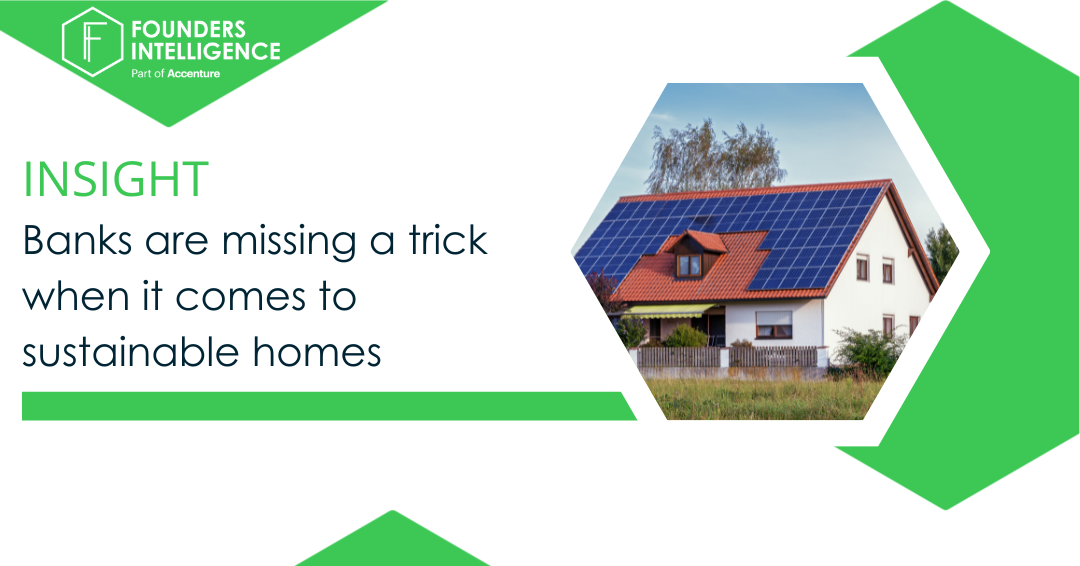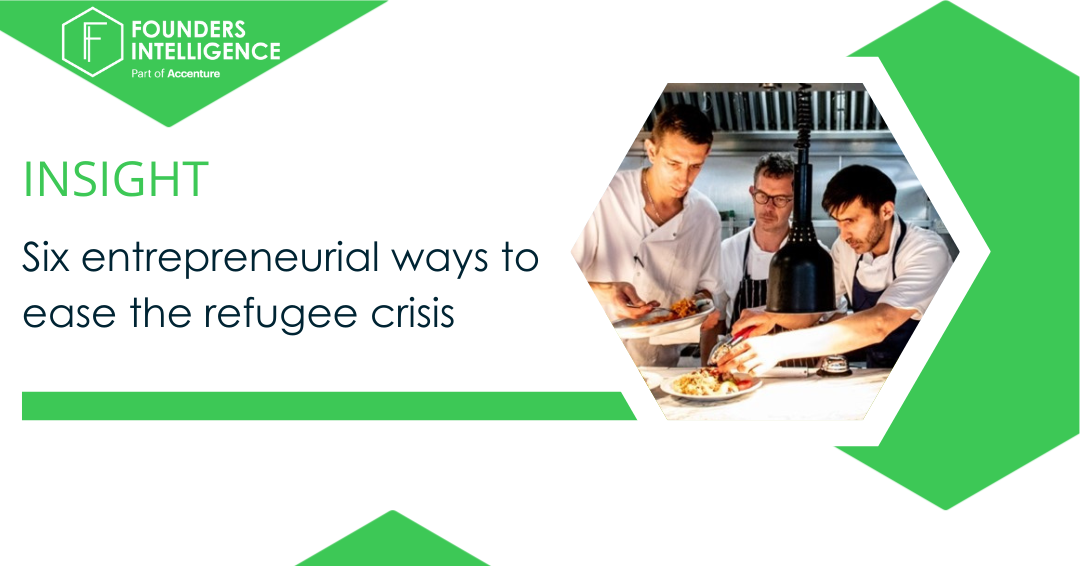A Different Take on HealthTech During London Tech Week
Founders Forum HealthTech is dedicated to bringing together the world’s most dynamic and celebrated individuals to drive meaningful conversation, debate, develop and transform the future of HealthTech.
Delivering the opening address for #LTWConnects was UK Prime Minister Boris Johnson, offering his words of welcome. Following this, we were honoured to have the Minister for Digital and Culture, Caroline Dinenage, deliver her welcome remarks in a keynote speech, recognising the role of digitisation in social care and importance of digital health technologies as we look to the future beyond the current crisis.
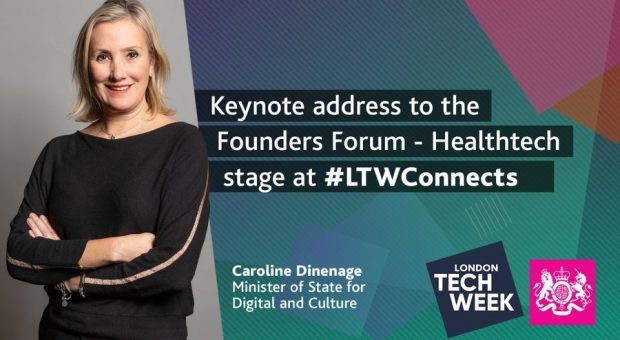
Following this, the digital event commenced with an eclectic series of panels, offering a glimpse of the dynamic, transformative, and omnipresent role of health in our lives. While there were several insights that emerged from each session, one thing became clear — COVID has highlighted the critical role of technology has played to underpin the healthcare industry, and it is here to stay.
Joined by special guest speakers dialling in from the US and Europe, our panellists offered a deeper understanding on how the Covid-19 response has influenced the next steps for the future of pharmaceuticals, how we maintain the health of our brains and the wellness of our minds, and how the communications and the creative industries can play a transformative role in the understanding and co-creation of health technologies and wellness. We hope we ignited meaningful discussion and you felt energised and uplifted throughout the sessions!
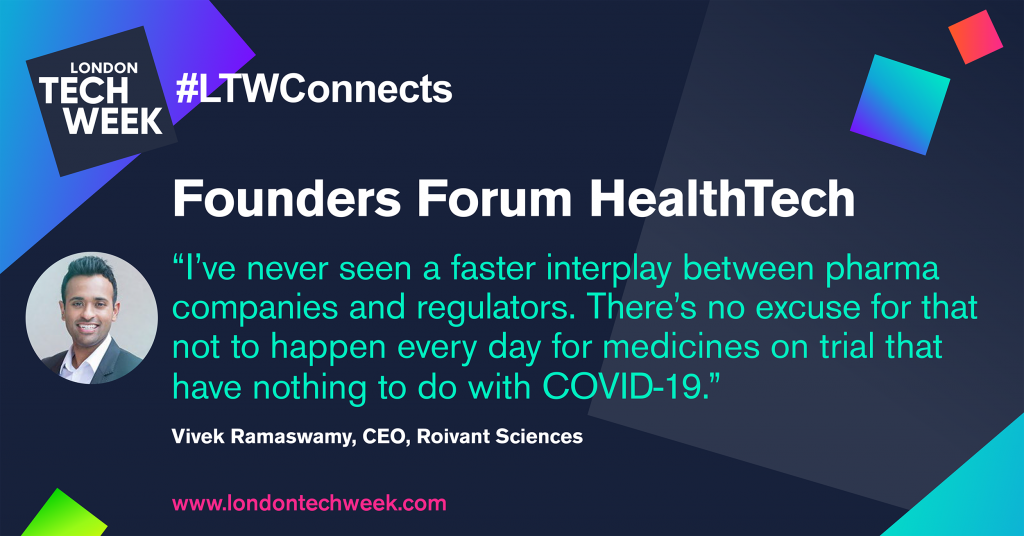
The Future of Pharma
Panelists: Thomas Clozel, Co-Founder & CEO, Owkin (moderator), Vivek Ramaswamy, CEO, Roivant Sciences; Haseeb Ahmad, Managing Director — UK, Ireland & Nordics and Country President UK, Novartis
The future of pharmaceutical is collaborative, responsive, and tech-led; across the board our panelists agreed the pharmaceutical sector has become more collaborative from night to day as silos have dissolved between value chain players and competitors and regulators. Collaboration paired with a hyper-rapid adoption of technology and interventions into the hands of patients; for example, there have been improvements in site developments, as new protocols are enabling and facilitating remote monitoring. The alphabet soup of AI (artificial intelligence), ML (machine learning), EC (edge computing) have accelerated the rise of both drug discovery and clinical trials as companies design new data sharing solutions have accelerated tech developments plagued by dirty and fragmented data. As we see pharma evolve two questions remain: how can we maintain and scale the new sense of purpose and ways of working we have recently found across the industry? And, how can we scale them to other diseases?
No More Ivory Towers
Panelists: Dr Jack Kreindler, Founder & Medical Director, CHHP, Dr Alex Kumar, Global Health Doctor, NHS
The focus of HealthTech has been, for obvious reasons, on COVID and this often means it is focused on our immediate circles of influences. In this fireside chat with Alex Kumar, photographer, doctor extraordinaire, we went on a journey into the reality of healthcare across the world, with other diseases, that are now experiencing decreased focus but equally high impact in the societies of their respective outbreaks. We were reminded of the role of medical waste instead of the potential disinfection we are privileged to have in our NHS, we were shown images of the consequences of antibiotic resistant diseases and the impact of isolation. Amid the current crisis and our renewed understanding of healthcare we should not forget the plight of others and the work to be done to bring healthcare to every community.
“There is a huge inequality in terms of how we document and portray diseases… but COVID has shown there is also community”
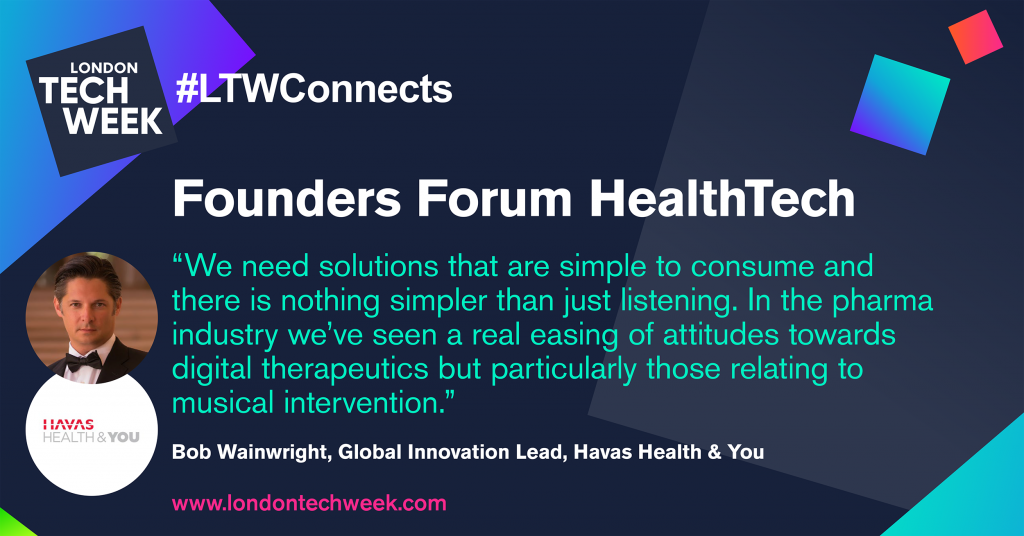
The Sound of Medicine
Panelists: Bob Wainwright, Global Innovation Lead, Havas Health & You; Brian Harris, Co-Founder & CEO, MedRhythms; Nigel Osborne, Co-Founder, X-System
As scientists across the world look for a vaccine to COVID we explored the power of music as a therapeutic intervention — in short, music makes you feel good but it also makes you well. Research has shown that music has a very real impact on our individual cells but it can also have dramatic effects on our behaviour (dubstep can reduce migraines) and motor health; for example, three decades of research proves that rhythmic auditory stimulation can improve functional outcomes like walking speed, stride lengths, reduce falls in patients with MS and Parkinsons. As we find more and more evidence that “a brain that engages with music is changed by engaging in music” we should reconsider how we deploy and provide access to medical interventions that can be easily accessible, have huge health outcomes, are non-toxic, and cost less — music is one of them.
“A cultural change is happening, an important part of that will be the mix of art and medicine, the medicine of who we are”
Covid-19: Unplugged on Mental Health
Panelists: Ruby Wax, Founder, Frazzled Cafe; Nick Taylor, Co-Founder & CEO, Unmind; Cosima Gretton, Mindstrong
Four months or more into lockdown has taken a toll on us — for every life saved there have been 400 jobs lost to date. Our mental health consisting of our physical and physiological mindsets are under attack as our nutrition, sleep and exercise habits have changed and many of us are experiencing job insecurity, loss, or loneliness. There are however, more technologies than ever that we can turn to, digital mental health is massively scalable and employers are increasingly understanding the importance of prioritising employees’ mental health and more importantly, providing them the resources and the time they need. Let us not forget that mental health is also physical, a first step is ensuring we are sleeping enough.
“[There is a] dark side of a meritocratic world: everything that’s going wrong has to do with us; this is the first time it’s external, we need to teach that if things go wrong it’s not your fault.”
As we continue to uncover the ways in which healthcare is rapidly changing daily we don’t want the conversation to stop at our event and invite you to share your views in answering our survey on the evolving HealthTech industry.
We leave you with a short message from the many conversations we witnessed today: “Just as our digital sectors are at the very heart of our response to COVID-19, they must be at the heart of our economic recovery too. We must rebuild in a way that is sustainable, inclusive, that celebrates and promotes diversity and that creates an economy that works for everyone.”
